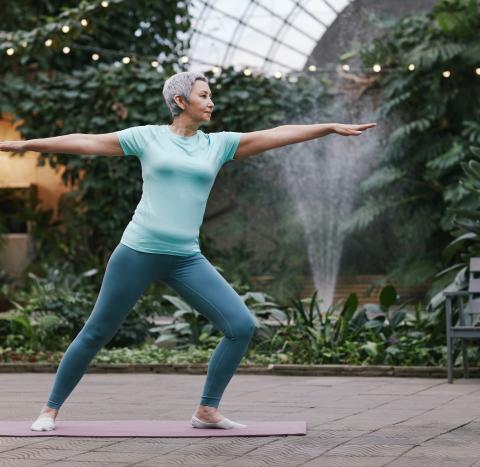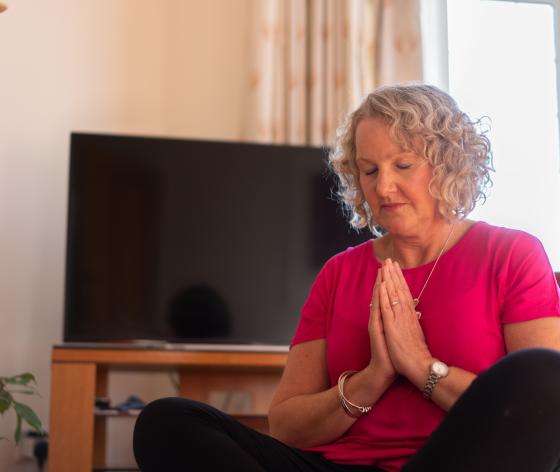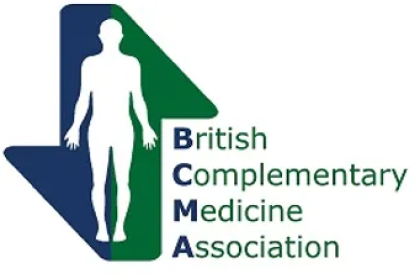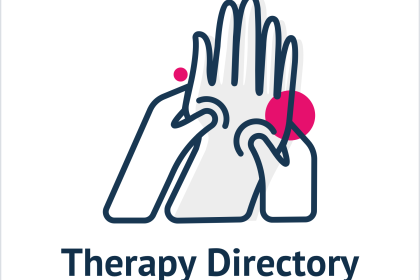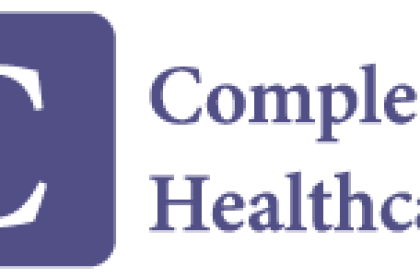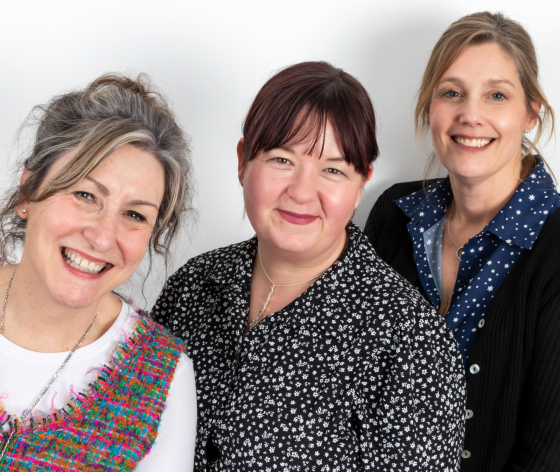Complementary therapies are treatments carried out by trained practitioners. You can use them with the usual (conventional) ovarian cancer treatments (such as surgery and chemotherapy).
No complementary therapies should replace your medical treatment. But some people use complementary therapies to help them relax or to ease symptoms and side effects alongside their usual ovarian cancer treatment.
Using complementary therapies
If you want to use complementary therapies alongside your treatment you should:
-
Always use a professionally registered therapist.
-
Always let your treatment team know about any complementary therapies you're using or plan to use. Some therapies may interact with your usual cancer treatments. This could make treatment work less well or increase the side effects. Most doctors will support you using a complementary therapy if they think it’s safe for you.
-
Tell your complementary therapist about your cancer treatment. They can talk to you about which therapy would be best during your treatment.
- Where can I access complementary therapies?
-
Your local cancer support centre may offer a range of complementary therapies for free. Most hospitals have links with local cancer support centres.
You may also want to ask your local hospice about the services they offer. You can speak to your Clinical Nurse Specialist (CNS) about complementary therapies too.
- How can complementary therapies help?
-
Complementary therapies don’t claim to cure cancer. Some complementary therapies have been scientifically tested to check how effective and safe they are. Research so far isn’t strong enough to prove the benefits. But there’s some evidence that therapies may help to improve your sense of wellbeing and quality of life. This is because complementary therapies can reduce stress, anxiety, pain and nausea (feeling sick).
- What are alternative therapies?
-
Often the terms complementary therapy and alternative therapy are used as if they mean the same thing. But alternative therapies are generally used instead of conventional medical treatments.
Most alternative therapies haven’t been through thorough medical trials (scientific testing). This means they may not be completely safe and could cause harm. There’s some evidence to suggest that choosing alternative therapies instead of conventional cancer treatment has a negative impact on survival.
Some alternative therapists may claim to be able to cure the cancer. But there’s no scientific or medical evidence to show that alternative therapies can cure cancer.
What complementary therapies can I access?
There are many different complementary therapies. They may be used alongside or after your hospital treatments to help you to relax or to ease symptoms and side effects. Some people find that these therapies may improve their mood and may help with different problems like sickness and pain.
- Acupuncture
-
Acupuncture involves placing fine needles into the body at particular points. This is thought to stimulate the nerves. The needles will be clean and free from bacteria (sterile).
Acupuncture is used to help reduce symptoms of ovarian cancer such as pain. It’s also used to help reduce the side effects of treatment such as sickness and hot flushes caused by some ovarian cancer drugs. Western medical acupuncture is based on scientific research. It can be used alongside conventional cancer treatments.
- Aromatherapy
-
Aromatherapy uses natural oils taken from plants (known as essential oils) to promote wellbeing and relieve stress. Some people use aromatherapy because it makes them feel good although more research is needed to learn how aromatherapy can help.
Aromatherapy can be used alongside conventional cancer treatments. But it’s really important to find a qualified aromatherapist. This is because some essential oils can cause skin irritation when used alongside some cancer drugs.
- Massage therapy
-
Massage therapy is a form of structured touch that involves stroking, kneading, tapping or pressing the soft tissues of the body. It can help people to relax and cope with stress and pain.
There are several different types of massage. Therapists may treat your whole body or focus on a specific part such as your shoulders or neck. Massage therapists working with people with cancer must be properly trained.
- Reiki
-
Reiki means ‘universal life energy’. It’s based on the idea that there’s an energy that flows through all living things. Reiki practitioners will put their hands on or slightly above your body. They’ll seek to balance the energy fields in and around you by moving their hands across your body.
Some people use Reiki to help with their physical, psychological, emotional and spiritual wellbeing. It’s safe to have Reiki alongside your ovarian cancer treatment.
- Mindfulness
-
Mindfulness is a non-religious form of meditation. It helps you to be present and fully engaged in the moment. It can have benefits for your sense of wellbeing, help with stress and anxiety and can be practised at home.
Mindfulness meditation courses are available locally in many areas. Many hospices and cancer support centres run mindfulness groups and training sessions. Find more mindfulness resources:
-
Maggie’s has relaxation and breathing exercises and suggestions of mindfulness apps you can download.
-
The NHS has information and videos about mindfulness as well as free audio exercises.
-
Penny Brohn has mindfulness and relaxation resources.
-
The Free Mindfulness Project share a list of short, free mindfulness sessions and breathing exercises.
-
The Mindfulness Network also share a list of free mindfulness exercises.
-
There are also apps which can help guide you through mindfulness exercises such as Calm and Headspace. These are free to download but have a subscription fee.
-
- Tai chi
-
Tai Chi is a form of physical activity that mixes mental concentration and breathing control. It centres around breathing exercises with the combination of motion and stillness. Some people use Tai Chi to help ease pain and reduce stiffness. Regular practice improves flexibility, strength and balance.
- Yoga
-
Yoga uses meditation and slow movement to promote flexibility and relax your mind and body. Some people use yoga because it makes them feel good and helps them to cope with stress. Yoga can sometimes help you to move around more quickly and easily after surgery for ovarian cancer.
Target Ovarian Cancer runs free weekly online yoga and relaxation sessions. Find out more and register to join.
- Reflexology
-
Reflexology is an energy-based therapy. It’s based on the idea that different areas on the feet or hands connect to different parts of the body. Gentle pressure is applied to specific points on the feet or hands with the aim of making you feel more relaxed. Some people use reflexology to improve symptoms such as sickness and pain.
When I started having chemotherapy, my local cancer support centre offered me acupuncture which helped with nausea and vomiting. I also had a course of Reiki which was really helpful. It made me feel calmer and less anxious. I still have Reiki three and a half years on and have done level 1 training myself... I feel I have helped my heart and soul while the medics take care of my body.


